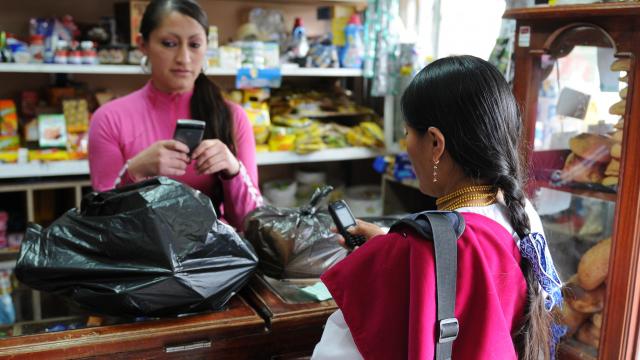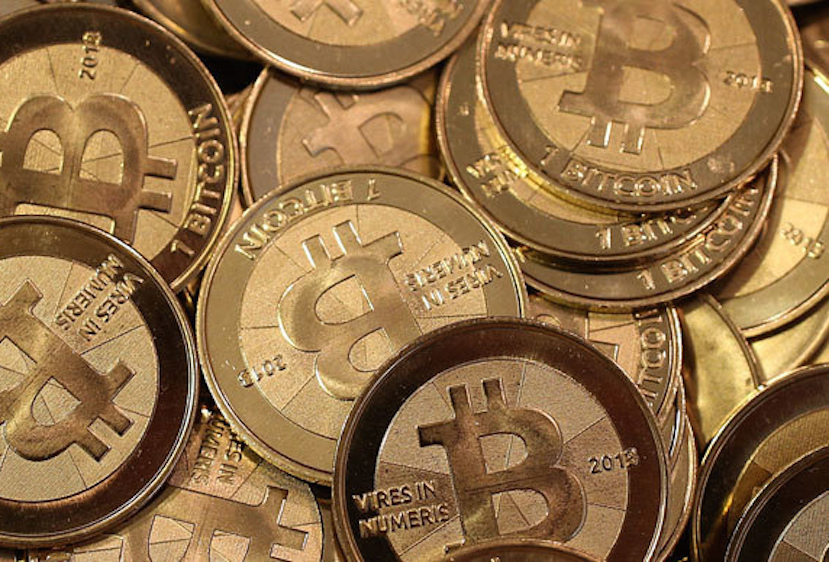
Global developments in finance and geopolitics are prompting a rethinking of the structure of banking and of the nature of money itself. Among other interesting news items:
-
In Russia, vulnerability to Western sanctions has led to proposals for a banking system that is not only independent of the West but is based on different design principles.
-
In Iceland, the booms and busts culminating in the banking crisis of 2008-09 have prompted lawmakers to consider a plan to remove the power to create money from private banks.
-
In Ireland, Iceland and the U.K., a recession-induced shortage of local credit has prompted proposals for a system of public interest banks on the model of the Sparkassen of Germany.
-
In Ecuador, the central bank is responding to a shortage of US dollars (the official Ecuadorian currency) by issuing digital dollars through accounts to which everyone has access, effectively making it a bank of the people.
Developments in Russia
In a November 2015 article titled “Russia Debates Unorthodox Orthodox Financial Alternative,” William Engdahl writes:
"A significant debate is underway in Russia since imposition of western financial sanctions on Russian banks and corporations in 2014. It’s about a proposal presented by the Moscow Patriarchate of the Orthodox Church. The proposal, which resembles Islamic interest-free banking models in many respects, was first unveiled in December 2014 at the depth of the Ruble crisis and oil price free-fall. This August the idea received a huge boost from the endorsement of the Russian Chamber of Commerce and Industry. It could change history for the better depending on what is done and where it further leads."
Engdahl notes that the financial sanctions launched by the US Treasury in 2014 have forced a critical rethinking among Russian intellectuals and officials. Like China, Russia has developed an internal Russian version of SWIFT Interbank payments; and it is now considering a plan to restructure Russia’s banking system. Engdahl writes:
"Much as with Islamic banking models that ban usury, the Orthodox Financial System would not allow interest charges on loans. Participants of the system share risks, profits and losses. Speculative behavior is prohibited... There would be a new low-risk bank or credit organization that controls all transactions, and investment funds or companies that source investors and mediate project financing... Priority would be ensuring financing of the real sector of the economy."
On September 15, 2013, Sergei Glazyev, one of Vladimir Putin’s economic advisers, presented a a series of economic proposals to the Presidential Russian Security Council that also suggest radical change is on the horizon. The plan is aimed at reducing vulnerability to western sanctions and achieving long-term growth and economic sovereignty.
Particularly interesting is a proposal to provide targeted lending for businesses and industries by providing them with low-interest loans at 1-4 percent, financed through the central bank with quantitative easing (digital money creation). The proposal is to issue 20 trillion rubles for this purpose over a five year period. Using quantitative easing for economic development mirrors a proposal by U.K. Labour leader Jeremy Corbyn for “quantitative easing for people.”
William Engdahl concludes that Russia is in “a fascinating process of rethinking every aspect of her national economic survival because of the reality of the western attacks,” one that “could produce a very healthy transformation away from the deadly defects” of the current banking model.
Iceland’s Radical Money Plan
Iceland, too, is looking at a radical transformation of its money system, after suffering the crushing boom/bust cycle of the private banking model that bankrupted its largest banks in 2008. According to a March 2015 article in The Telegraph:
"Iceland’s government is considering a revolutionary monetary proposal – removing the power of commercial banks to create money and handing it to the central bank. The proposal, which would be a turnaround in the history of modern finance, was part of a report written by a lawmaker from the ruling centrist Progress Party, Frosti Sigurjonsson, entitled 'A better monetary system for Iceland.' "'The findings will be an important contribution to the upcoming discussion, here and elsewhere, on money creation and monetary policy,' Prime Minister Sigmundur David Gunnlaugsson said. The report, commissioned by the premier, is aimed at putting an end to a monetary system in place through a slew of financial crises, including the latest one in 2008."
Under this “Sovereign Money” proposal, the country’s central bank would become the only creator of money. Banks would continue to manage accounts and payments and would serve as intermediaries between savers and lenders. The proposal is a variant of the Chicago Plan promoted by Kumhof and Benes of the IMF and the Positive Money group in the U.K.
Public Banking initiatives in Iceland, Ireland and the U.K.
A major concern with stripping private banks of the power to create money as deposits when they make loans is that it will seriously reduce the availability of credit in an already sluggish economy. One solution is to make the banks, or some of them, public institutions. They would still be creating money when they made loans, but it would be as agents of the government; and the profits would be available for public use, on the model of the US Bank of North Dakota and the German Sparkassen (public savings
In Ireland, three political parties – Sinn Fein, the Green Party and Renua Ireland (a new party) — are now supporting initiatives for a network of local publicly-owned banks on the Sparkassen model. In the U.K., the New Economy Foundation (NEF) is proposing that the failed Royal Bank of Scotland be transformed into a network of public interest banks on that model. And in Iceland, public banking is part of the platform of a new political party called the Dawn Party.
Ecuador’s dinero electronico: A national digital currency
So far, these banking overhauls are just proposals; but in Ecuador, radical transformation of the banking system is under way.
Ever since 2000, when Ecuador agreed to use the US dollar as its official legal tender, it has had to ship boatloads of paper dollars into the country just to conduct trade. In order to “seek efficiency in payment systems [and] to promote and contribute to the economic stability of the country,” the government of President Rafael Correa has therefore established the world’s first national digitally-issued currency.
Unlike Bitcoin and similar private crypto-currencies (which have been outlawed in the country), Ecuador’s dinero electronico is operated and backed by the government. The Ecuadorian digital currency is less like Bitcoin than like M-Pesa, a private mobile phone-based money transfer service started by Vodafone, which has generated a “mobile money” revolution in Kenya.
Western central banks issue digital currency for the use of commercial banks in their reserve accounts, but it is not available to the public. In Ecuador, any qualifying person can have an account at the central bank; and opening one is as easy as walking into a participating financial institution and exchanging paper money for electronic money stored on their smartphones.
Ecuador’s banks and other financial institutions were ordered in May 2015 to adopt the digital payment system within the next year, making them “macro-agents” of the Electric Currency System.
According to a National Assembly statement:
"Electronic money will stimulate the economy; it will be possible to attract more Ecuadorian citizens, especially those who do not have checking or savings accounts and credit cards alone. The electronic currency will be backed by the assets of the Central Bank of Ecuador."
That means there is no fear of the bank going bankrupt or of bank runs or bail-ins. Nor can the digital currency be devalued by speculative short selling. The government has declared that these are digital US dollars trading at 1 to 1 – take it or leave it – and the people are taking it. According to an October 2015 article titled “Ecuador’s Digital Currency Is Winning Hearts!,” the currency is actually taking the country by storm; and other countries in Latin America and Africa are not far behind.
The president of the Ecuadorian Association of Private Banks observes that the digital currency could be used to finance the public debt. However, the government has insisted that this will not be done. According to an economist at Ecuador’s central bank:
"We did it from the government because we wanted it to be a democratic product. In any other countries, [digital currency] is provided by private companies, and it is expensive. There are barriers to entry, like [expensive fees] if you transfer money from one cellphone operator to another. What we have here is something everyone can use regardless of the operator they are using."
Banking Moves Into the 21st Century
The catastrophic failures of the Western banking system mandate a new vision. These transformations, current and proposed, are constructive steps toward streamlining the banking system, eliminating the risks that have devastated individuals and governments, democratizing money, and promoting sustainable and prosperous economies.
They also raise some provocative questions:
Would issuing “quantitative easing” to the tune of 20 trillion rubles for Russian development and trade trigger hyperinflation? Could merging the Iceland version of the Chicago Plan with a public banking initiative return the power to create money to the public without collapsing credit? How does the Ecuadorian national digital currency mesh with the “war on cash” underway in Europe? These and related questions will be explored in later articles. Stay tuned.
3 WAYS TO SHOW YOUR SUPPORT
- Log in to post comments
















